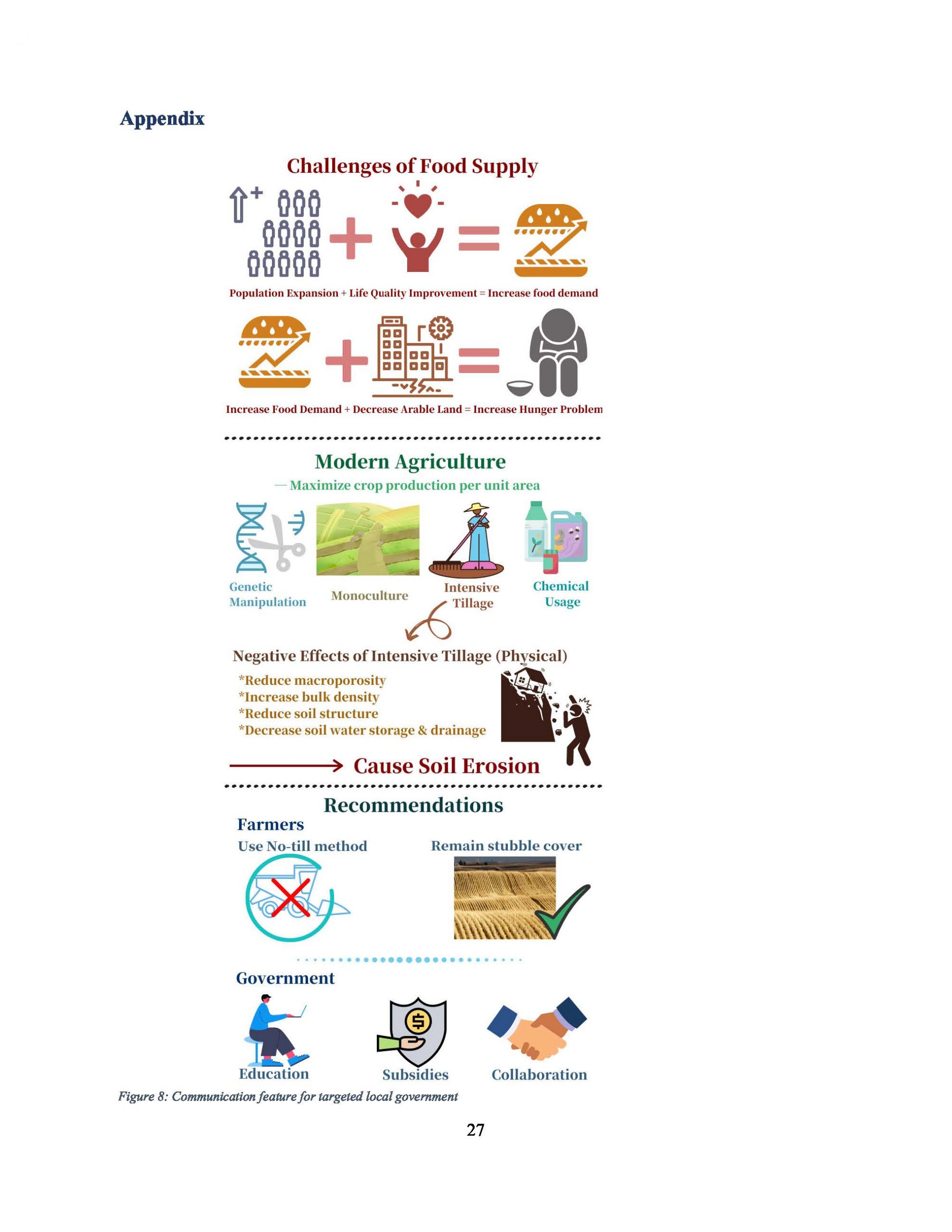Effect of Soil Management on Soil Erosion – With Focus on Tillage System
Claire Huang, MLWS 2022
Population expansion and life quality improvements rapidly increase the global food demand. However, many arable lands are converted for industrial and residential use. The requirement to maximize food supply on limited arable land promotes the implementation of modern agriculture.
Modern agriculture can effectively increase food supply through monoculture, genetic manipulation, intensive tillage, and chemicals usage. However, the effects of modern agriculture on soil, including biodiversity reduction, nutrient deficiency, and soil structure destruction promote land degradation. It decreases the long-term ability of soil to provide food and environmental services.
Erosion is the primary reason for land degradation, and intensive tillage is the main practice to cause erosion. Intensive tillage breaks soil aggregates and reduces macroporosity, which decreases the water storage and water drainage ability of soil. The decreased soil organisms and aggregates resulting from frequent tillage decrease biodiversity and slow the soil nutrient cycling. Unlike chemical and biological effects, which have well-documented assessment methods, the interaction of soil and external factors makes physical effects hard to assess.
With the case study in the Anding District, this paper comprehensive literature reviews and the Universal Soil Loss Equation (USLE) to assess the physical effects of different tillage methods in the case study based on the loess plateau soil. Through the effect on bulk density, porosity, aggregates, and field capacity of the conventional tillage and three no-till methods, the result shows that no-till with stubble cover produces less soil disturbance and has the highest erosion resistance.
To promote the transformation of conventional tillage to no-till with stubble cover, this paper recommends the local government implement farmers' education, provide subsidies, and strengthen the collaboration between enterprises and farmers. These strategies can increase the willingness and ability of local farmers to change tillage methods, which support the erosion control program of the government.
